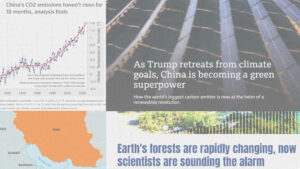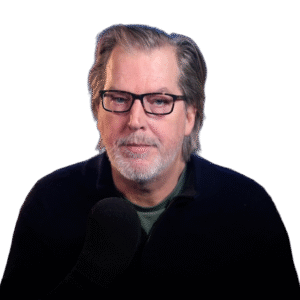Description
This week, Nate walks through the path we are currently on en route to the Great Simplification – a path towards a “Mordor Economy”. Based on data from colleagues Art Berman and Carey King, Nate untangles the complex relationship between biology, GDP, and net energy. How is an economic metabolism based on a need for growth creating a pathway for increasing amounts of energy to be directed to the energy sector itself? Why hasn’t the rapid growth of renewables satiated our energy appetite? How is the use of credit masking the full energetic-cost of energy? Can we proactively take the necessary steps to reset the balance between energy efficiency and energy consumption to pass through Mordor unscathed and arrive at the Great Simplification?
In French, we have a motto that says that a simple drawing is often better than a long explanation. Jean-Marc Jancovici Carbone 4 President
That’s very understandable because with left atmosphere thinking, one of the problems is that you see everything as a series of problems that must have solutions. Iain McGilchrist Neuroscientist and Philosopher
We can’t have hundreds and hundreds of real relationships that are healthy because that requires time and effort and full attention and awareness of being in real relationship and conversation with the other human. Nate Hagens Director of ISEOF
This is the crux of the whole problem. Individual parts of nature are more valuable than the biocomplexity of nature. Thomas Crowther Founder Restor
Show Notes & Links to Learn More
PDF Slideshow with the graphs used in this segment
00:19 – 2021 Earth day talk
00:25 – Art Berman TGS Episode #54
01:22 – Maximum Power Principle
01:46 – Kleiber’s law
02:40 – Tim Garrett
03:14 – Energy and GDP are 99% correlated (fig. 2), Materials and GDP are 100% correlated
04:08 – The Bank of Japan owns 50% of its national bonds
07:30 – In 1999, the energy sector only used 5% of energy, which has been rising since
09:30 – Destruction and interference of ecological processes
10:08 – PFAS chemical pollution
10:57 – *Graph made with historical data and future projections of GDP*
11:47 – Since 1995 we’ve become 33% more efficient with energy, but also 50% more energy







